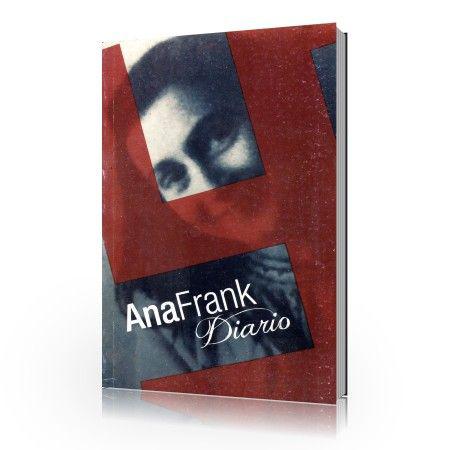Anne Frank 1
Anne Frank describes enduring pain

Anne Frank describes enduring pain
Forced to walk on tiptoe, deprived of the outside world, longing for air and freedom, sharing with others that loneliness that persists even when accompanied, confident that the end would be “good,” Anne Frank lived her last two years.
Translated and edited by Walter Lippmann for CubaNews.

Photo: Cover of the book
Forced to walk on tiptoe, deprived of the outside world, longing for air and freedom, sharing with others that loneliness that persists even when accompanied, trusting that the end would be “good”, that is how Anne Frank lived her last two years.
She went from being the talkative 13-year-old schoolgirl who was always “the first to play jokes, the eternal joker,” to feeling “conscious of being a woman of moral strength and courage.”
She, whirlwind and din, independent, flirtatious, interested in the history and mythology of Greece and Rome, should be remembered not only for the causes that brought death upon her, but for the vitality with which she faced them, certain that, at the end of that terrible struggle, she would be recognized as other people and not only as a Jewess.
“I want to go on living, even after my death. That is why I am grateful to God who, since my birth, gave me the possibility (…) of expressing everything that happens in me. When I write I forget everything, my sorrow disappears and my courage is reborn. But – and this is the main question – will I ever be able to write something lasting, will I ever be able to be a journalist or a writer?”
No wonder then that, that night of March 28, 1944 while listening to the radio, all eyes around her turned to her and her diary seemed “taken by storm,” after hearing Minister Bolkestein say that at the end of the war letters and memoirs concerning that time would be collected. “Fix yourself a novel about the annex published by me! Wouldn’t that be interesting, wouldn’t it?” she left initialed in her notes on the evening.
Thanks to the memoirs she so skillfully recorded in her diary, humanity has been able to know how those eight Jews who clandestinely lived in the annex of a warehouse in Holland ate, slept, talked and spent their days, terrified by the constant bombing and the fierce fear of being “discovered and shot” by the Gestapo, all this while half the world was sinking into hunger, misery and death unleashed by the Second World War.
In Kitty – as she called “the very first surprise” she received on June 12, 1942, on her thirteenth birthday – she found someone to whom she could confide without reserve everything she was unable to express, not even to her parents and sister. Overwhelmed by family conflicts, those of adolescence and those caused by confinement, war and the feeling of being besieged, Anne gave no respite to her pen and diary, the basis of her truncated yearnings to have fun, ride a bicycle, go to school, dance, whistle, have a place in the world and work for her fellow humans.
There, amid the suffocation of confinement, she found love in Peter, the son of the family with whom the Franks shared the annex. “Every time he looks at me with those eyes (…) a little flame seems to light up in me”. Anne understood in the midst of all the horror that “he who is happy can make others happy. Whoever loses neither courage nor confidence, will never perish from misery”.
She, like so many other Jews, died in a concentration camp, just one month before it was liberated. Today, when the world is plunged in hatred and conflicts, the firmness of spirit is the best tribute to that young woman murdered by human monstrosity.
Subscribe to Blog via Email
| M | T | W | T | F | S | S |
|---|---|---|---|---|---|---|
| 1 | 2 | 3 | 4 | 5 | 6 | 7 |
| 8 | 9 | 10 | 11 | 12 | 13 | 14 |
| 15 | 16 | 17 | 18 | 19 | 20 | 21 |
| 22 | 23 | 24 | 25 | 26 | 27 | 28 |
| 29 | 30 | |||||

You must be logged in to post a comment.